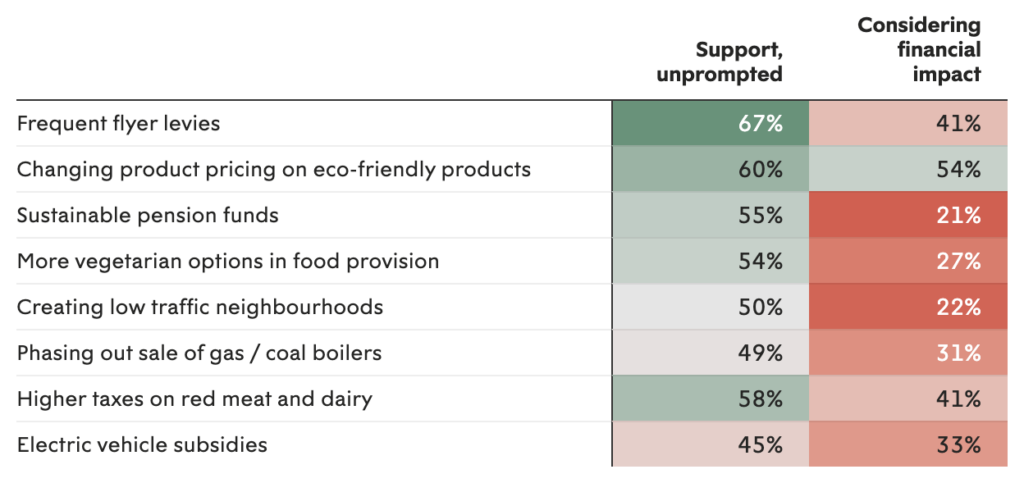In a recent YouGov poll, Britons were asked whether they support the government’s aim to “reduce Britain’s carbon emissions to Net Zero by 2050”. A large majority, 70%, said they did. Only 20% said they opposed this aim. Game, set and match to proponents of Net Zero – right?
Not so fast. Asking people whether they support Net Zero is like asking them whether they support increasing the NHS budget or reducing the number of run-over kittens. Of course they’re going to say yes. People interpret the question to mean, ‘Do you generally approve of cutting emissions?’ And since most people do generally approve of that, they answer in the affirmative.
They don’t interpret the question to mean, ‘Do you support the government’s aim to reduce Britain’s carbon emissions to Net Zero by 2050 even though this would impose significant costs on ordinary Britons?’ If you asked the question in this way, you might well get a different answer.
Likewise, if you asked people, ‘Do you support reducing the number of run-over kittens to zero’, you would get a different answer than the one you’d get if you asked them, ‘Do you support reducing the number of run-over kittens to zero even though this would require setting speed limits to 10 mph?’
Indeed, the YouGov poll mentioned above found that support for Net Zero falls considerably when you bring up the costs:

As you can see, the percentage of respondents who support reducing emissions collapses by 44 percentage points when it is stated they may “result in some additional costs for ordinary people”.
Ipsos MORI made the same finding in a poll last year. Support for various Net Zero policies dropped by up to 34 percentage points when considering the financial impact. (Note: the exact financial impact differed from question to question. For example, the item about frequent fliers had the qualifier “if this policy meant that you personally had to pay more to take a flight”.)

Given that almost every Net Zero policy is going to come with sizeable costs, it seems important to mention those costs when gauging public opinion. And in both polls cited here, doing so made support for Net Zero sink like a broken wind-turbine propeller.
What’s more, in neither case did the poll say the costs were particularly large. The YouGov poll merely referred to “some” additional costs, while the Ipsos MORI merely referred to paying “more” for such-and-such, paying “higher” taxes or getting a “smaller” return. Britons didn’t even need to be told they’d have to pay “a lot more” to become much less enthusiastic.
The public likes the idea of Net Zero, but when it comes to implementation they’re decidedly lukewarm.














To join in with the discussion please make a donation to The Daily Sceptic.
Profanity and abuse will be removed and may lead to a permanent ban.